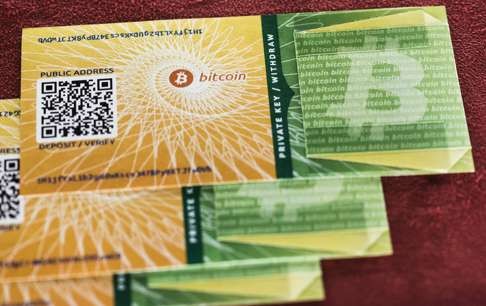
How blockchain, tech behind bitcoin, could usher in a cashless revolution
Able to distribute data that can’t be tampered with, enabling trackable, secure transactions of any kind, blockchain’s potential applications are almost limitless. But will we trust our lives to code?
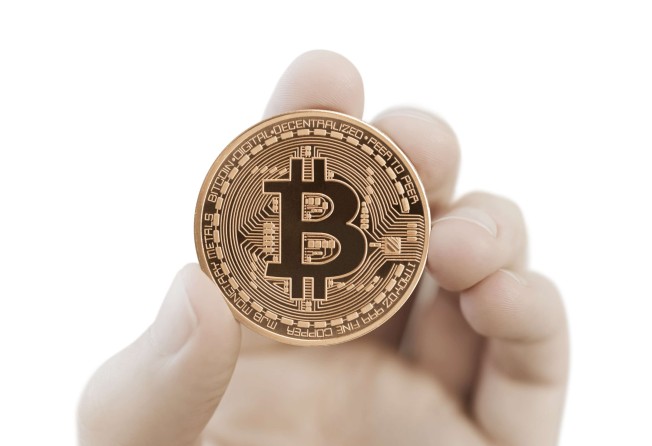
Contactless payments, Octopus, WeChat, Apple Pay … the digital world is turning quickly to electronic money, with cheques and now cash on the endangered list.
With global travel and trade and a demand for ever greater transparency, currency exchange fees are being questioned, and even the need for national currencies. The old system is fast looking like, well, old money. So why not have a completely digital currency?
Enter bitcoin, which appeared as an alternative method of exchange after the global financial crisis of 2009. Created by a mysterious computer coder with the pseudonym Satoshi Nakamoto, it’s since been the flag-bearer for digital money.

This peer-to-peer electronic cash system gets its fair share of detractors, and it’s become obvious that it’s not going to dominate tomorrow’s world. However, the technology at its core almost certainly will.
Called the blockchain and used throughout Bitcoin exchanges, this is about securely tracking and verifying transactions of any kind.
Able to distribute data (for that’s all digital currency really is) that can’t be tampered with, some think it could help create a 100 per cent secure internet.
“The blockchain technology is not the same as Bitcoin and provides benefits beyond virtual currencies,” says Andrew Erickson, executive vice-president of State Street Corporation and head of global services business in Asia Pacific.
He describes it as a “foundational technology” and one that can be used across hundreds of industries. “Blockchain’s ability to have multiple parties store distributed copies of the same data, while guaranteeing consensus, or the same version of truth, is a new paradigm in the institutional world,” he says.
Add built-in cryptography that means data can’t be intercepted or changed – at least, not without leaving a permanent record – and we could have reliability that the digital world has never before enjoyed.
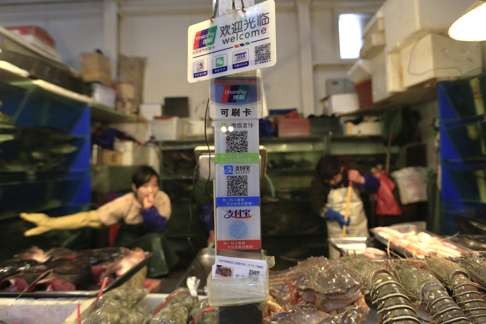
Using the blockchain would also help digitise a banking system that’s so far been reluctant to abandon the old ways.
“Today, many activities in a trade transaction are manual and paper-reliant,” says Vivek Ramachandran, global head of product and proposition management at HSBC.
“Blockchains offer the promise of automating transactions and replacing document checking with data checking.”
Abandoning fax machines and form-filling for an autonomous digital system that tracks and traces every transaction will reduce costs for banks, but it could also drastically change what banks do.
“In trade finance, a distributed ledger blockchain could potentially allow for buyers and sellers to agree on the terms of a deal, and use a blockchain ledger to track and manage the transaction from start to finish,” says Ramachandran.
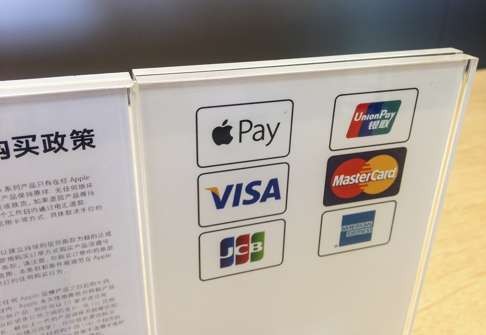
So who needs banks?
“Some see blockchain as removing banks from financial transactions, while others, less dramatically, predict that it will bring a more efficient technology to support current practices,” says Mark Nuttall, at Linklaters. “Everyone must wait and see.”
Banking group Santander estimates that blockchains could save banks US$20 billion a year by 2022.
Whether it kills the banks or saves them money, what does all of this mean for us?
Cross-border payments should get cheaper, certainly, while transactions of all kinds should get quicker; selling a house, having a loan deposited in your bank account, and making any kind of payment.
Blockchain could also be used to digitally lock medical records; doctors would need express permission to access them, and their viewing of them would be indelibly recorded. Ditto credit histories and educational records.
The technology could also help usher in a new era of micro-payments that could turn on its head our understanding of value.
With everything digitised and streamlined, tiny reconciliation charges would be possible; a Wi-fi hot spot could charge you by the second, or a shopping mall could charge you just for coming inside if it’s raining outside.
You could be refunded a small, but precise amount on your Octopus card if there was a delay in your MTR journey, or charged extra if you take a seat.
There are a lot of links to make for those kind of scenarios to happen, but the key technology is blockchain, which is the current king of emerging tech.
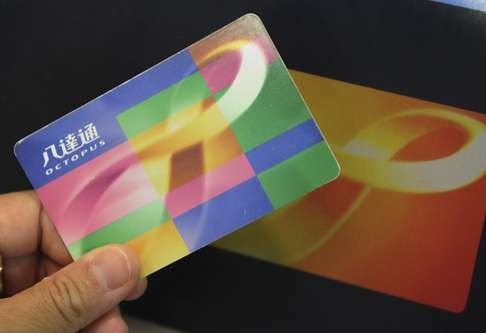
Chinese conglomerate and car-parts manufacturer Wanxiang Group is investing US$50 million to create Blockchain Labs, a venture capital fund that will back start-ups experimenting with blockchain technology. IBM, Intel, Microsoft and others are all exploring how the technology could and should change the digital sphere, while hundreds of start-ups are experimenting.
Airbnb is even trying to use the blockchain to make its user profiles into universal, readable digital identities. Once merely a bitcoin technology, blockchain is turning into a gold rush.
Bitcoin is not popular with the People’s Bank of China, where the recent devaluation of the yuan and tighter currency controls seem to be encouraging the use of bitcoin as a way of transferring money out of the country.
“There are mounting concerns that this is becoming an increasingly large source of flight of capital,” says Genevieve Leveille chief executive of KrypC, a blockchain start-up which is headquartered in India and works across Asia.
But bitcoin in China is a popular commodity to speculate on; it was officially banned as a currency since 2013.
It is only human to want recourse to a reputation or relationship, a person or institution that cares about resolving problems, rather than be faced with the implacable and uncaring logic of an algorithm
Hong Kong has no legislation directly regulating virtual currencies, but bitcoin’s reputation as a sound financial platform has nevertheless suffered.
“Bitcoin exchanges such as MyCoin have created a bad reputation for bitcoin after they closed out a year after the Mt. Gox scenario,” says Leveille of the Tokyo-based bitcoin exchange that collapsed in February 2014.
“There were many large investors and the sudden closure had a potential combined value of HK$3 billion. Thus, banks and other large companies consider bitcoin to be too risky for investments.”
This new surge of interest in blockchain technology – nicknamed “crypto 2.0” – already has its epicentre in Hong Kong. A blockchain event, organised by MecklerMedia, will be held at the Hong Kong Convention and Exhibition Centre on May 24 and 25.
“The new applications for distributed ledger technology are still a few years away as the regulatory regime and affected stakeholders accept the new world order,” says Leveille, who compares the current situation to the years preceding the “dotcom boom” of the late 20th century.
However, a blockchain-driven cashless world that uses a currency based purely on data is far from inevitable. Is it even desirable?
Some worry whether a digital currency designed by governments could be used to snoop on their financial affairs, while an anonymous, automated currency where no-one holds the “skeleton key” is just as scary.
“Will individuals trust an anonymous code with their savings and finances or will they demand a trusted brand rather than putting their faith in technology?” says Nuttall.
“It is only human to want recourse to a reputation or relationship, a person or institution that cares about resolving problems, rather than be faced with the implacable and uncaring logic of an algorithm.”
For others, the blockchain and the open ledger system it creates could bring a whole new dimension of trust to the internet. Anonymity and trust, it seems, are two sides of the same coin.